The fall of Baghdad: special coverage
It is 12 years since George W Bush and Tony Blair used the pretext of weapons of mass destruction to invade and occupy Iraq, home to one of the most sophisticated and advanced civilisations in the world.
On 9 April 2003 a statue of Saddam Hussein in Baghdad's Firdos square was draped in a US flag and symbolically toppled. The message was simple: resistance is futile.
But this date was not just the beginning of Iraq's tragedy - it was the start of the darkest chapter in the modern history of the Middle East.
Al-Araby al-Jadeed marks this cataclysm with extensive special coverage. Please keep an eye out on this page as we add articles and comment over the next few days.
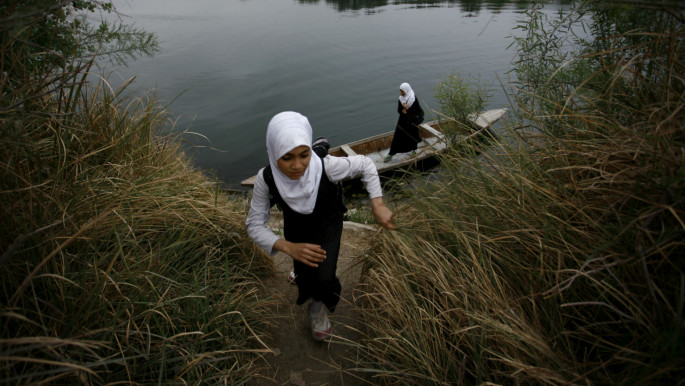 |
| No light at the end of the tunnel |
| Analysis: Since the US invasion in 2003, Iraq's children have suffered, and continue to suffer, unimaginably. The scars will remain for generations, say Dirk Andreasens and Bie Kentane. |
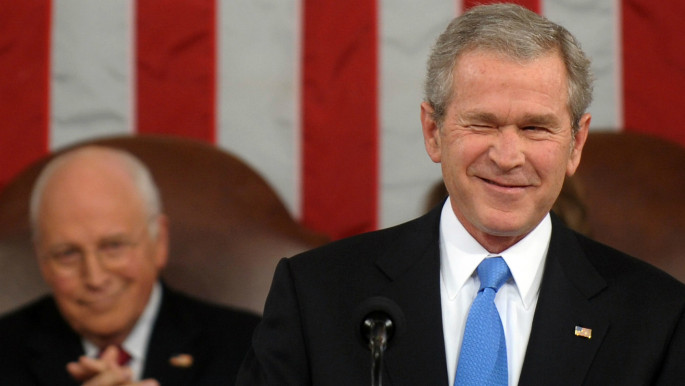 |
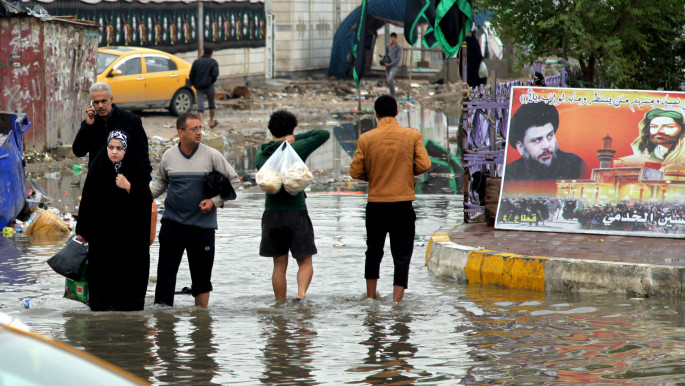 |
|||
| Iraq's war never ended and has no end | Beaten, battered and scarred... only unity can save Iraq | |||
| Comment: The fall of Baghdad set in motion a war of terror that now spins out of control, creating its own enemies and perpetuating its own logic, says Sam Hamad. | Comment: The fall of Saddam brought Iraqis nothing but more fear, more poverty and more violence. They deserve so much more, says Nazli Ihsan Adil Tarzi. | |||
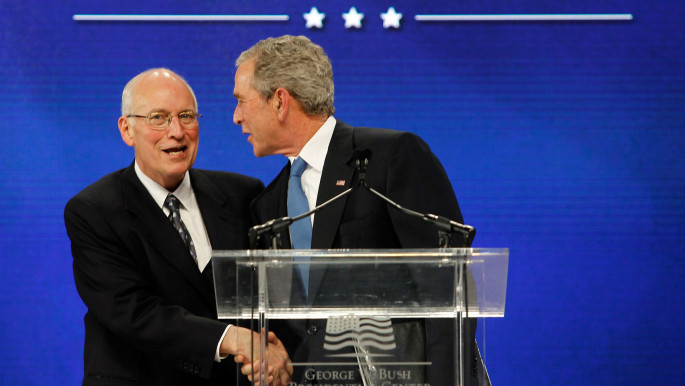 |
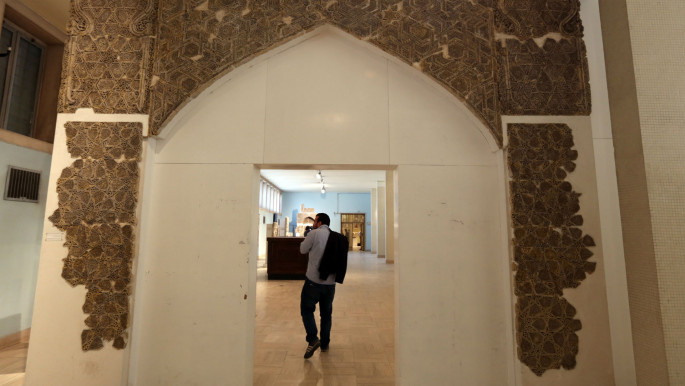 |
|||
| Oil: the central reason for the Iraq invasion | Erasing collective memory, eliminating the middle class | |||
| Twelve years ago, invading US forces overthrew the Baath regime. Whatever pretexts were given at the time, the central reason was oil, writes Said Arikat. | Without collective memory there can be no unifying national identity. And the middle class is crucial to both. But Iraq’s middle class has been decimated, writes Dirk Adriaensens. | |||
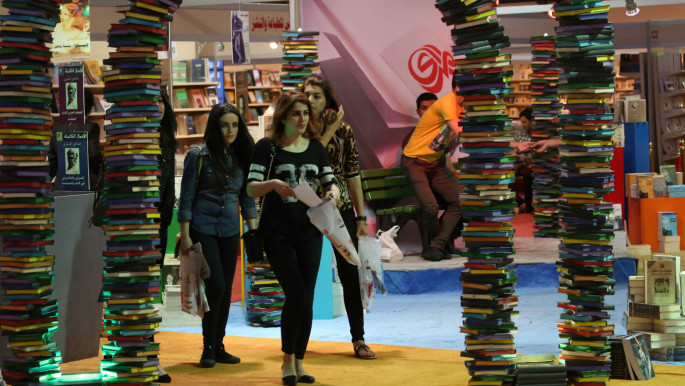 |
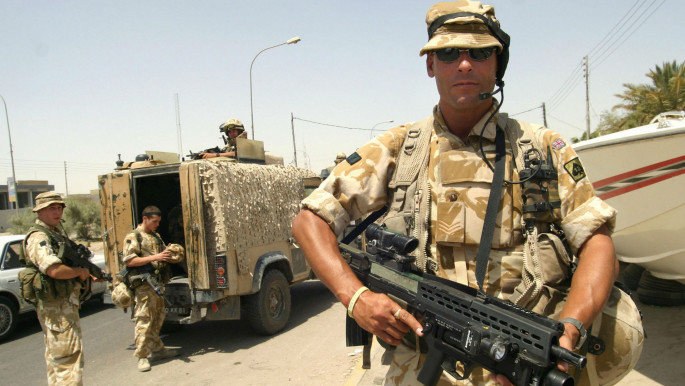 |
|||
| The literature of forgetting and remembering | Basra's bitter memories of the British occupation | |||
| Iraqis are producing a body of 'literature as resistance', Americans ‘embedded literature’, writes Marcia Lynx Qualey. | Residents of Basra describe the destruction to their province caused by the British occupation. | |||
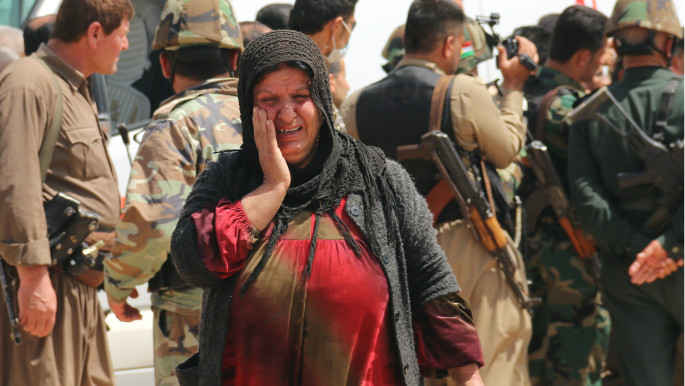 |
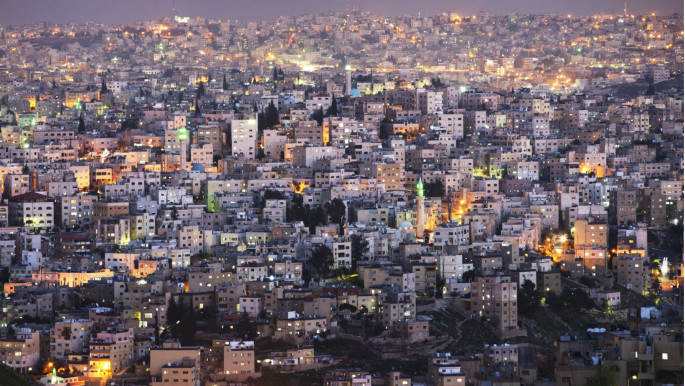 |
|||
| Iraqi voices: women brutalised by sanctions and war | An Iraqi in Amman: Waiting for a better future | |||
| Feature: Long years of sanctions and wars have brutalised generations of women and girls in Iraq, and set back the struggle for equal rights by decades. | Feature: An Iraqi woman living in poverty in Amman talks about her life, lost hope for her home country and her wish to emigrate to Sweden or Australia. | |||
 |
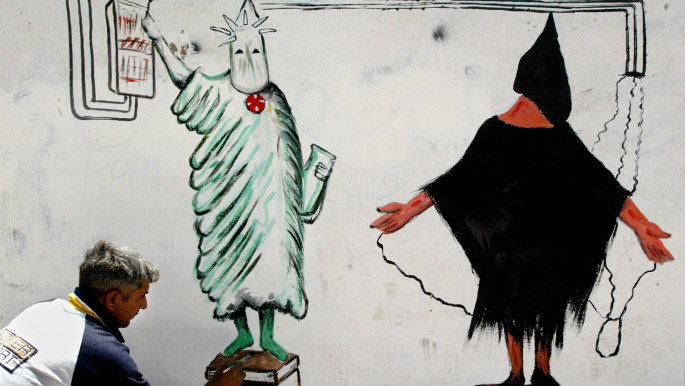 |
|||
| Regime change: a criminal calamity for Iraq | Inside the gulags of US occupation | |||
| Comment: The US invasion of Iraq was based on lies and has lead to unspeakable horrors. It is time for accountability, says former UN representative to Iraq, Hans von Sponeck. |
Feature: Evidence gathered by the World Tribunal on Iraq in 2005 highlight the shocking treatment of Iraqi civilians in prisons run by the US. |
|||
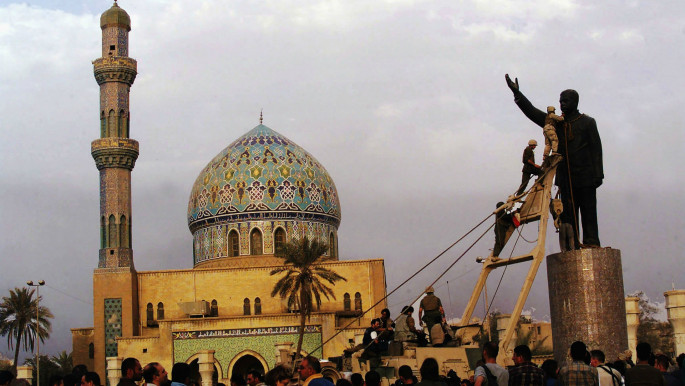 |
| Toppling dictators: A pictorial journey through toppling statues across the region and beyond. |
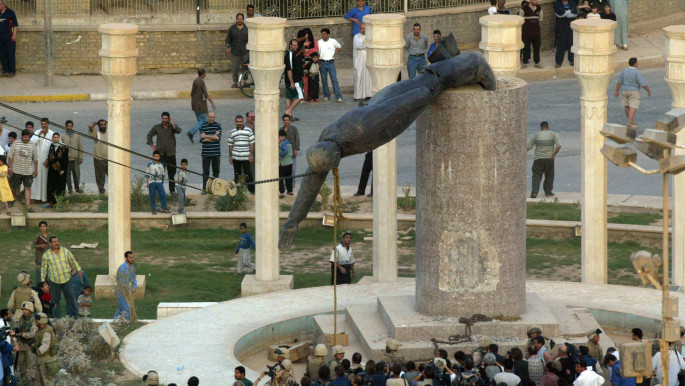 |
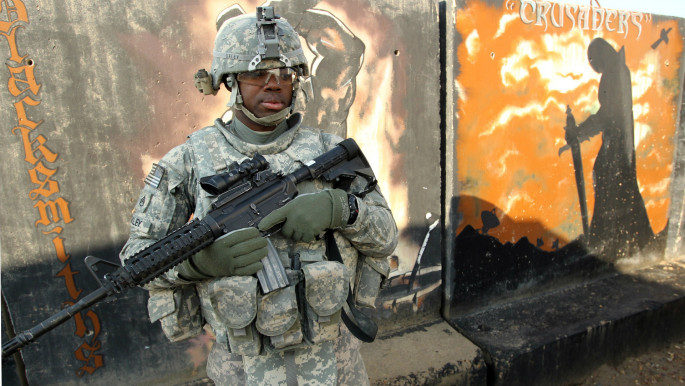 |
|||
| Iraq's people have suffered long enough | A nation whose dreams have been destroyed | |||
| Comment: Iraq is a shattered country, and aid agencies are swamped by the millions of civilians forced from their homes by war, says Alexandra Lort Phillips. | Comment: Iraq was invaded on a lie and has become the foreword to the darkest chapter of the Middle East's modern history, says Shukri Shewayish. | |||
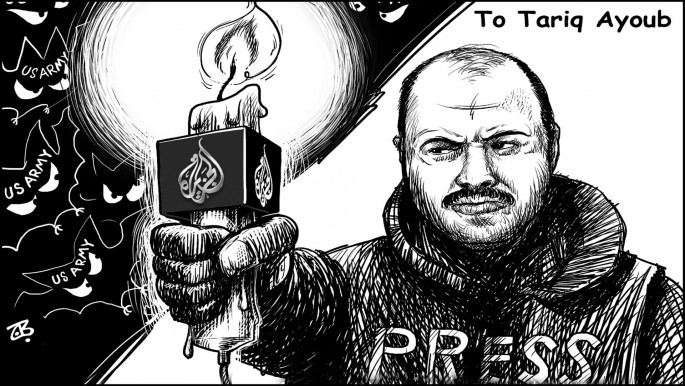 |
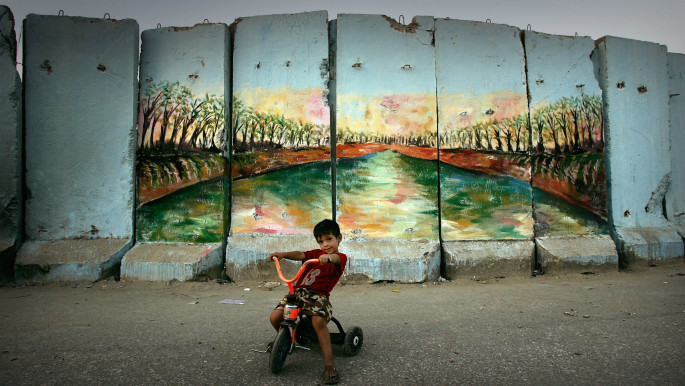 |
|||
| Bloody Tuesday: 12 years on and no justice |
And how is Baghdad today? | |||
| Several journalists were killed as the US advanced on Baghdad. Their deaths marked the beginning of a new kind of 'embedded' war coverage, says Dirk Adriaensens. | A multicultural city of peace for millennia has been conquered, divided and transformed in the 12 years since US invasion. Baghdadis are resisting, says Haifa Zangana. | |||
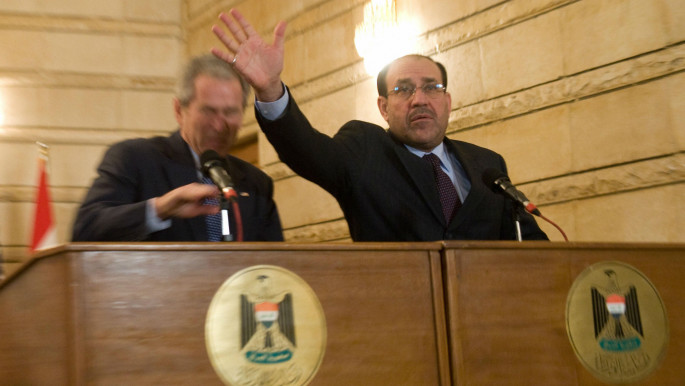 |
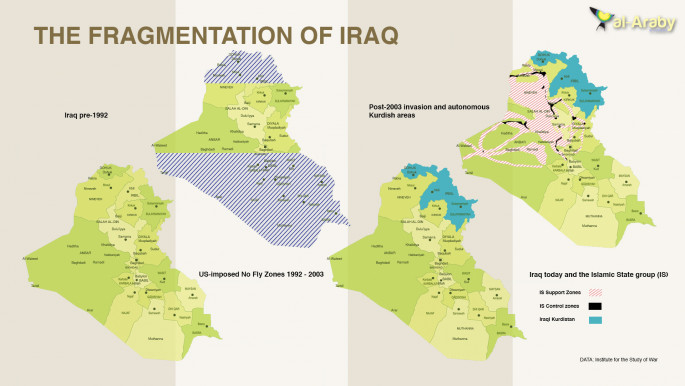 |
|||
| 'Freedom's victory' still haunts Iraq | 12 years of despair | |||
| Analysis:The US-led invasion of Iraq has left a country rife with corruption and splintered along sectarian lines. | From the Gulf War through to the occupation to the rise of the Islamic State group, we take a look at key events. | |||





 Follow the Middle East's top stories in English at The New Arab on Google News
Follow the Middle East's top stories in English at The New Arab on Google News
![Israeli forces ordered bombed Gaza's Jabalia, ordering residents to leave [Getty]](/sites/default/files/styles/image_330x185/public/2176418030.jpeg?h=a5f2f23a&itok=_YGZaP1z)

